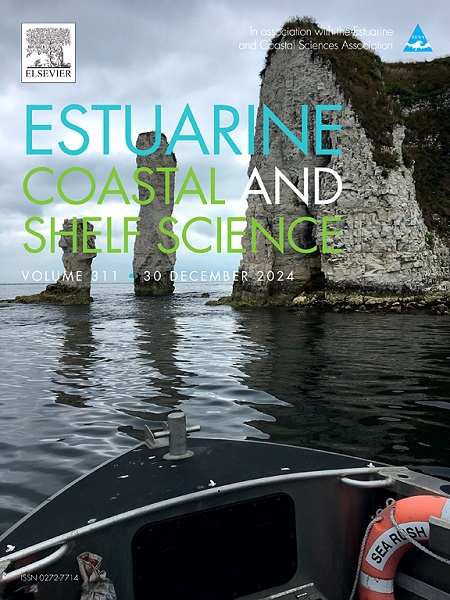Transitional habitats and transformative dialogues: Use of the resist-accept-direct (RAD) framework to identify tidal freshwater forested wetland management actions
IF 2.6
3区 地球科学
Q1 MARINE & FRESHWATER BIOLOGY
引用次数: 0
Abstract
Tidal freshwater forested wetlands (TFFWs) are ecologically and culturally valuable ecosystems increasingly threatened by sea level rise and land use change. South Carolina contains the largest extent of TFFWs in the United States, including 36,530 ha in the lower Waccamaw River Basin. As these systems undergo ecological transformation, new tools are needed to support adaptive management under novel conditions. The Resist–Accept–Direct (RAD) framework provides a structured approach for exploring a full range of potential responses to environmental change.
We present a case study of applying RAD through a facilitated one-day workshop involving natural and social scientists, land managers, and local decision-makers that occurred as part of a 3 day conference on TFFWs in March of 2024. Participants reviewed plausible ecological futures and engaged in structured brainstorming to develop a RAD-aligned menu of management actions linked to shared goals and objectives. Six times more actions were identified post-workshop compared to pre-workshop inputs, indicating a substantial expansion of perceived decision space and available alternatives.
This study demonstrates that RAD menu development is a practical tool for fostering deliberative engagement in coastal wetland systems. When supported by preparatory information and inclusive facilitation, even short workshops can generate diverse, actionable strategies for managing ecological transformation. These findings offer a transferable model for applying RAD across estuarine and coastal landscapes facing accelerating change.

过渡生境和变革性对话:利用抵制-接受-直接(RAD)框架确定潮汐淡水森林湿地管理行动
潮汐淡水森林湿地(TFFWs)是具有生态和文化价值的生态系统,日益受到海平面上升和土地利用变化的威胁。南卡罗来纳州拥有美国最大范围的tffw,包括Waccamaw河下游流域的36,530公顷。随着这些系统经历生态转型,需要新的工具来支持新条件下的适应性管理。抵制-接受-直接(RAD)框架为探索对环境变化的各种潜在响应提供了一种结构化的方法。作为2024年3月为期3天的tffw会议的一部分,我们通过一个由自然和社会科学家、土地管理者和当地决策者参与的为期一天的研讨会,介绍了应用RAD的案例研究。与会者回顾了可能的生态未来,并进行了有组织的头脑风暴,以制定与rad一致的管理行动菜单,这些行动与共同的目标和目的有关。与研讨会前的投入相比,研讨会后确定的行动多了六倍,表明感知决策空间和可用替代方案的大幅扩展。本研究表明,RAD菜单开发是促进沿海湿地系统审慎参与的实用工具。在准备信息和包容性便利的支持下,即使是短期讲习班也可以产生管理生态转型的多样化、可操作的战略。这些发现为在面临加速变化的河口和海岸景观上应用快速发展研究提供了一个可转移的模型。
本文章由计算机程序翻译,如有差异,请以英文原文为准。
求助全文
约1分钟内获得全文
求助全文
来源期刊
CiteScore
5.60
自引率
7.10%
发文量
374
审稿时长
9 months
期刊介绍:
Estuarine, Coastal and Shelf Science is an international multidisciplinary journal devoted to the analysis of saline water phenomena ranging from the outer edge of the continental shelf to the upper limits of the tidal zone. The journal provides a unique forum, unifying the multidisciplinary approaches to the study of the oceanography of estuaries, coastal zones, and continental shelf seas. It features original research papers, review papers and short communications treating such disciplines as zoology, botany, geology, sedimentology, physical oceanography.

 求助内容:
求助内容: 应助结果提醒方式:
应助结果提醒方式:


